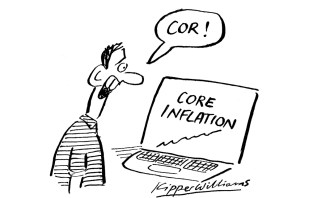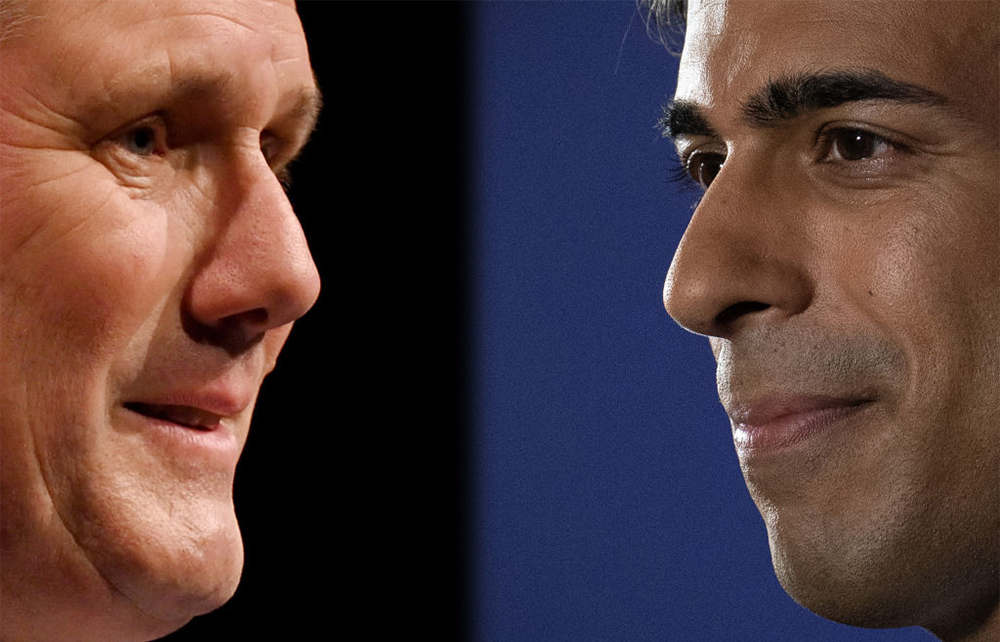Keir Starmer and Rishi Sunak have something in common: both men are under pressure to reshuffle their front benches and pick a final pre-election team. ‘The agitating tends to be done by those who want jobs, rather than those who have them,’ sighs one member of the Labour leader’s team. But with an election due next year – whether it’s in the spring or autumn – Sunak and Starmer know they have one last chance to refresh their front benches before going to the polls.
Sunak’s mission is to refresh a tired, squabbling party to make it look like a new government
A pre-election reshuffle isn’t just about managing teams and egos: it means choosing the personalities, tone and message on which to campaign. In 2014, David Cameron used his reshuffle to neutralise Tory weaknesses, even if that meant punishing effective ministers. As one loyal lieutenant recalls, those who Lynton Crosby thought ‘grated with the public’ were sacked or moved to backroom roles. Michael Gove was demoted to chief whip despite his stellar run as education secretary and supplanted by Nicky Morgan, praised for her mild manners. A desire to promote more women meant Owen Paterson was pushed out in favour of Liz Truss. These were difficult decisions, but Cameron believed they were necessary for victory.
Sunak’s mission is to refresh a tired, squabbling party to make it look like a new government, rather than the fag-end of the Tories’ 14 years in power. Plans for an early reshuffle have been complicated by the triple by-election next month, so the autumn of this year looks most likely. Since the departure of Boris Johnson from the Commons and the self-immolation of his allies such as Nadine Dorries, some ministers have argued that Sunak should stamp his authority on the cabinet and lose the idea that he has to balance warring party factions. ‘He should just get on with it, do what he wants on key appointments,’ says one senior minister. ‘He needs people who are 100 per cent behind him, not halfway there.’

Who might fail such a loyalty test? Some cabinet ministers point to Suella Braverman, whom Sunak made Home Secretary as a reward for agreeing not to support a Boris restoration last autumn. Critics accuse her of being on manoeuvres, working with the right of the party to push Sunak around. But others in the Prime Minister’s team take the view that she is better in the tent than out. Her occasional verbal bombs can be helpful. ‘On immigration, we should be to the right,’ says one aide.
Since Sunak’s ‘five pledges’ are proving trickier to meet than first imagined, he will want to make sure he has the right ministers to deliver them. One of his biggest problems is high inflation, but it’s hard to blame Jeremy Hunt, who has only ever done what No. 10 asked. Health Secretary Steve Barclay is a Sunak loyalist but he hasn’t managed to keep doctors from striking, which is blamed for increased waiting lists. There have also been reports of friction between Downing Street and Business Secretary Kemi Badenoch, the bookmakers’ favourite to succeed Sunak.
Ministers planning to stand down at the next election could be moved aside for fresher faces such as Richard Holden, a Red Wall MP, Laura Trott, a former Osborne aide, and Victoria Atkins, financial secretary to the Treasury. All three have been helpful to No. 10 on policy and on the airwaves. Ministers who have regularly turned down media appearances could find their career prospects dimming.
As for Starmer, he must prepare his shadow cabinet for office. Party elders are already giving advice to shadow ministers, most of whom have no experience of being in power. Inside the leader’s office, aides insist Starmer is in no rush to do anything drastic. That’s certainly been the case so far – ambitious MPs complain that he missed an opportunity for a reshuffle after the local elections. The shadow cabinet has not even adjusted to Sunak’s new cabinet briefs: energy and net zero, business and trade and the new science department. Tories say this is proof that Starmer is slow-moving and not ready for the challenges of government.
One figure certain to stay is Rachel Reeves, the shadow chancellor and easily the most influential member of the shadow cabinet. The rest of Starmer’s team is largely made up of three groups: his loyalists (Steve Reed, Nick Thomas-Symonds), Reeves’s allies (Wes Streeting and Peter Kyle) and the soft left (Ed Miliband and Lisa Nandy).
An effective Starmer government would need stability in the two areas which most demand reform: health and welfare. This means that there is an argument for keeping the straight-talking Streeting in health and Jonathan Ashworth as shadow work and pensions secretary. Both men will be asked to perform difficult tasks that their party activists may dislike. Jack Straw spent three years as shadow home secretary ahead of his move to the Home Office. He recently told the Institute for Government that that time meant he had stress-tested his reforms before he entered office.
The Blairites – a resurgent force in post-Corbyn Labour – would like to get rid of Ed Miliband, whom they still blame for the party’s long spell in opposition and see as too close to the Extinction Rebellion faction of the party. Reeves’s recent U-turn on her party’s energy plans – postponing a pledge for £28 billion a year on ‘green jobs’ and technology – has been read as a victory over Miliband. There are rumours that he could have his wings clipped over energy policy in the next reshuffle.
But Miliband is unlikely to lose influence entirely. He remains close to Starmer and enjoys his protection. ‘Every time we move a bit away from him, Keir goes back,’ says a party insider. Others defend Miliband as an important asset in stopping despondent voters on the left from moving to the Greens.
If the polls fail to move, Starmer’s pre-election shadow cabinet will help to decide how successful his first 100 days are. Sunak’s reshuffle could play a role in determining who succeeds him after a defeat (the subject of much Tory conversation). But reshuffles are usually a test of ruthlessness: the next few months will show how determined to win the leaders really are.







Comments